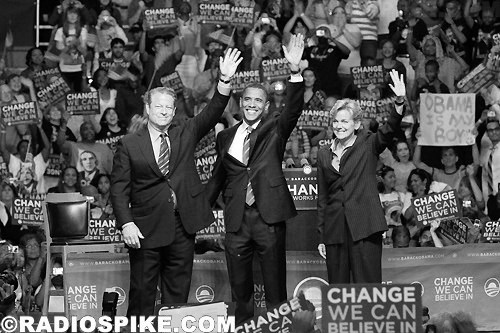Keeping the Gravy Train Rolling
After bailouts and billions of dollars worth of taxpayer handouts, the big public employee union bosses are spending freely to keep the train rolling. From the Wall Street Journal: The National Education Association, the largest U.S. teachers union, has independently spent more than $3.4 million that must be disclosed, including ad buys and direct-mail campaigns, for the key electioneering period from Sept. 1 to Oct. 14. The NEA spent $444,000 during the same stretch in 2006. The American Federation of State, County and Municipal Employees has nearly matched its 2006 midterm outlays. It has spent $2.1 million on electioneering since the beginning of last month, according to FEC filings for two campaign committees associated with the union. That is just shy of the $2.2 million spent for that period in 2006. Unions that represent government workers say this year's election is crucial to them, given the uproar over public-sector budget issues. Officials elected this year will face tough choices on matters such as further fiscal assistance for the nation's cash-strapped states and local governments. The issue of campaign-related spending by public-sector unions has received more attention in recent years, as state and local governments struggle with pensions and other costs. Conservative critics and business leaders have said the unions largely seek to expand their influence at taxpayers' expense. Some states have approved restrictions on political use of union dues, for example requiring unions to obtain permission from workers before spending dues on campaigns.





